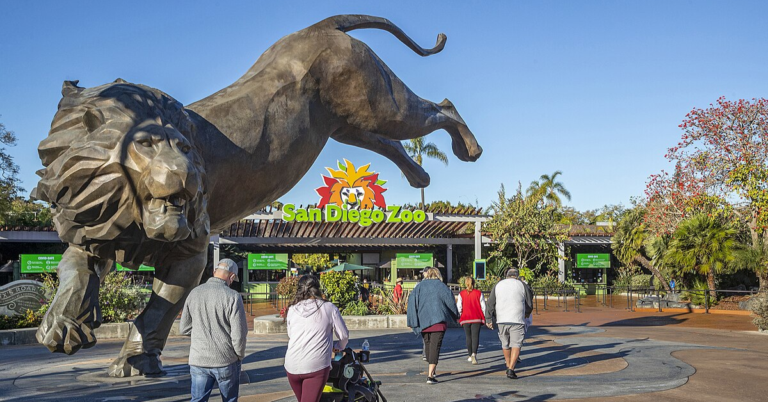15 Common American Blunders in Europe (And How to Save Face)

Exploring Europe is an exciting adventure filled with rich history, diverse cultures, and exciting food. It’s helpful to be aware of some common travel blunders to make the most of your journey in Europe. Let’s help you ensure your European adventure is everything you hope for and more.
Ignoring Local Customs and Etiquette

One of the most frequent errors is failing to research local customs and etiquette. Each European country has its unique social norms; what might be acceptable in one place could be considered rude in another. Spend some time understanding these differences to avoid awkward situations.
Overpacking

Overpacking is another common mistake Americans make. They are used to having a lot of space and tend to bring too much. European streets, trains, and budget airlines often have limited space, so pack light. A smaller suitcase will make navigating cobblestone streets and public transportation easier, and you’ll appreciate the freedom of traveling light.
Not Learning Basic Local Phrases

Ignoring the local language can also lead to trouble. While many Europeans speak English, trying to learn a few simple phrases in the local language can go a long way. It shows respect and can also help you in regions where English isn’t widely spoken, making your interactions smoother and more pleasant.
Forgetting to Validate Train Tickets

In many European countries, simply purchasing a ticket isn’t enough; you must validate it before boarding. Look for the small validation machines typically found on train platforms. If you don’t, you risk paying high fines, which can quickly sour your travel experience.
Not Utilizing Public Transportation

Americans often overlook the importance of using public transportation. Europe boasts some of the world’s most efficient and extensive public transit systems. Acquaint yourself with the local metro, bus, and train systems. It’s often cheaper, faster, and a more immersive way to see the city than relying solely on taxis or rideshares.
Over-Scheduling Your Itinerary

While exploring as much as possible is tempting, cramming too many activities into each day can lead to exhaustion. Instead, allow for flexibility and downtime. Enjoy leisurely meals, stroll through parks, and take in the local ambiance without feeling rushed.
Currency Exchange Mishaps

Avoid changing large amounts of money at airports or tourist hotspots where rates are often less favorable. Instead, use local ATMs to withdraw cash or consider using credit cards that don’t charge foreign transaction fees. This can save you a significant amount of money throughout your trip.
Dining Only in Tourist Areas

This may be convenient, but they often don’t offer the most authentic food. Go a little off the beaten path to find street food spots and eateries where the locals dine. You’ll likely enjoy better meals at lower prices and get a true taste of the region’s cuisine.
Misunderstanding Tipping Customs

Being unaware of European tipping customs can also lead to awkward moments. Tipping practices vary across countries, with some places including service charges in the bill and others expecting a small additional tip. Research the tipping etiquette for each country you visit to show appreciation appropriately without overdoing it.
Not Carrying Some Cash

Although credit cards are widely accepted in Europe, cash is still the primary form of payment in many regions, particularly in small businesses, markets, and rural areas. Always have local currency on hand for purchases, tips, or places that don’t accept cards.
Underestimating Travel Time

Europe might look small on a map, but getting from one place to another often takes longer than anticipated. Whether traveling by train, bus, or car, account for travel time and potential delays in your itinerary to avoid unnecessary stress.
Not Booking Accommodations in Advance

Making last-minute hotel reservations can lead to disappointment. Though spontaneity can be fun, Europe’s popular destinations often have limited availability, especially during peak seasons. Secure your lodging ahead of time to guarantee a comfortable place to stay.
Failing to Notify Your Bank

Banks often flag foreign transactions as suspicious activity, which can result in your card being frozen. Before you leave America, let your credit card company and bank know to confirm that you can access your funds without any hitches while abroad.
Ordering the Irish Car Bomb

The “Irish Car Bomb” cocktail originated in 1979 at Wilson’s Saloon in Norwich, CT, not Ireland. Its name references the bubbling effect when a whiskey shot is dropped in Guinness. However, it also evokes a violent period in Northern Ireland, where car bombs were used as a standard weapon. As a result, the drink is generally not served in Ireland or England, and bartenders may react negatively to those who order it.
Not Immersing Yourself in Local Culture

Finally, failing to immerse yourself in the local culture is a missed opportunity. Europe offers a wealth of cultural experiences, from art and history to music and cuisine. Don’t just stick to the tourist trails; explore local neighborhoods, attend events, and engage with residents. This will enrich your trip and create lasting memories.






